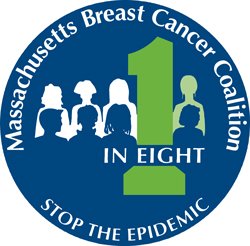Massachusetts Breast Cancer Coalition is proud to serve as a Community Partner on three national health projects focusing on three national PFAS health and exposure studies.
STEEP
PFAS research on Cape Cod
The first project, funded by the National Institute of Environmental Health Sciences (NIEHS), is the STEEP Superfund Research Program. This project is led by the University of Rhode Island and includes researchers from the Harvard T.H. Chan School of Public Health and Silent Spring Institute, and focuses on private well water testing on Cape Cod for PFAS, how PFAS enter groundwater from firefighting foams, wastewater, and other pollution sources and the health effects from PFAS exposure. STEEP researchers will also study the chemical properties of PFASs and their specific impact on human health through a long-term health study of children in the Faroe Islands, complemented by laboratory studies. As a project partner, MBCC works with STEEP team members to organize community events and share information about STEEP with citizens throughout Massachusetts.
PFAS-REACH
Investigating PFAS exposures and their impacts on children’s health
The second project, also funded by NIEHS, is PFAS-REACH (Research, Education, and Action for Community Health). This 5-year study is led by Silent Spring Institute, along with researchers from Northeastern University and Michigan State University, and community partners Testing for Pease and Toxics Action Center. PFAS-REACH is investigating PFAS exposures and their impacts on children’s health in Hyannis and at the Pease Tradeport in Portsmouth, NH. MBCC is working with the project team to organize community events to raise awareness about the study, work with pediatricians and other medical professionals, and support strong policies at the state and national level to address these harmful chemicals. As a project partner, MBCC plays a critical role in recruitment and logistical planning for the children’s health study and the community experience study, leveraging existing relationships with community leaders and partners, and building new relationships to support all aspects of the study.
ATSDR
Assess PFAS exposure and a range of health effects
The third project is part of a larger multi-state study funded by the Centers for Disease Control and Prevention (CDC) and the Agency for Toxic Substances and Disease Registry (ATSDR) on PFAS health effects. Silent Spring Institute is leading the study in Massachusetts, which will include both Hyannis and the Town of Ayer. The team also includes researchers from Harvard T.H. Chan School of Public Health and Eastern Research Group, along with the community group People of Ayer Concerned about the Environment. The study will assess PFAS exposure and a range of health effects including immune response, kidney function, thyroid disease, liver disease, glycemic parameters, diabetes, and neurobehavioral outcomes. As a community partner for this study, MBCC provides on-the-ground support for logistical planning and recruitment, ensuring that the local community is informed about the study and its importance for public health.
